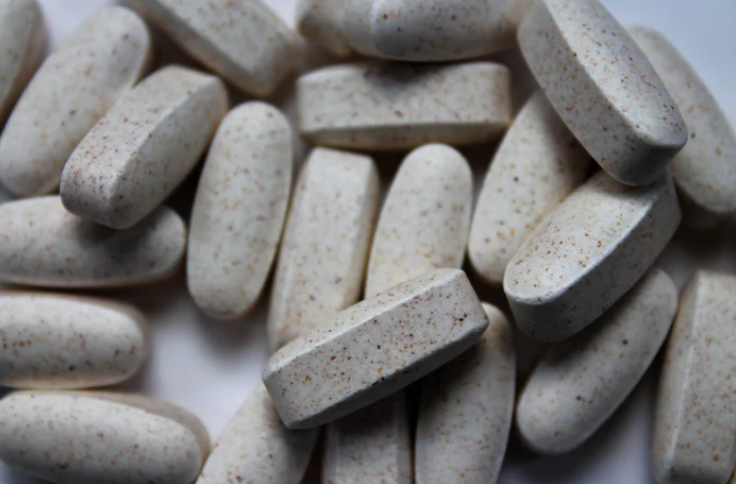I like to think of prenatal vitamins as an insurance policy, a way to help protect against deficiencies. It should always go hand and hand with a nutritious diet, however, your diet should not be relied on as your only vitamin and mineral source. During the intensive developmental phases of pregnancy, a nutrient deficiency can have lasting consequences for your baby, which it why a good prenatal supplement on top of a good diet is always recommended.
Pre-Natal Vitamins
When shopping for a prenatal vitamin it can be overwhelming of what to look for. Folate seems to be the only topic of discussion but there are a few other key things to look for in your vitamin that I would recommend.
- Methyl donors
Methyl donors are a type of nutrient that affects gene expression, which can be particularly important during development.
It’s important to look for a prenatal that include methyl donors as they are interrelated. For example, we all know folate is important, but choline can support mamas with folate deficiency.
This includes:
- Vitamin B12
- Vitamin B6
- Folate
- Choline
I also would look for folate and B12 on the label as methylfolate or L-5-MTHF and methylcobalamin. This means they are in methylated forms which means it will be easier for your body to use.
Folate is one supplement that has been extensively studied for use in pregnancy and is extremely effective at preventing neural tube defects.
2. Vitamin D & K2
Vitamin D helps support the immune system and also protects against preterm labor and gestational diabetes. Having a supplement with D3 is also important as this is what the body makes, meaning it’s easy for your body to absorb and use and also helps raise blood levels of vitamin D.
K2 is also important to be combined with Vitamin D as it helps support its absorption. K2 also is great for helping to support a strong foundation for bones and teeth. Not all supplements have K2, just K1. I recommend getting one with K2 as it not only supports vitamin D but also vitamin A, helping them do their job more effectively.
In many cases, vitamin D in prenatal vitamins are 400 IU which is the bare minimum. How much vitamin D you need when you’re pregnant is a complicated subject and one which doctors and scientists have yet to agree on.
Here is a list of the current recommendations for pregnant women from organizations in the United States, as you can see, it ranges greatly.
| Vitamin D Council | 4,000-6,000 IU/day |
| Endocrine Society | 1,500-2,000 IU/day |
| Food and Nutrition Board | 600 IU/day |
| Recommended daily intakes for pregnant women | |
It’s a personal preference if you decide to take a large dosage of vitamin D during pregnancy.
3. Choline
Choline is an important one for your babies’ brain development. Choline is the precursor to acetylcholine, a neurotransmitter that’s essential for the growth and maturation of brain cells.
Choline acts as a methyl donor, similar to folate, which means it can affect gene expression and in choline’s case that is influencing behavior. It also has an anti-inflammatory effect during pregnancy which is important to reduce chances of premature birth.
During pregnancy, choline plays a role similar to folate and acts as a methyl donor, which means it can have a lasting effect on gene expression.
Other Supplementation
Outside of your prenatal supplement, there are other supplementations that some expecting mothers choose to use. These were the 3 that I used during my pregnancy.
1. Probiotics
Probiotics used during pregnancy help support that your baby will get a good dose of beneficial bacteria during vaginal delivery. The placenta naturally contains histamine-metabolizing enzymes, but you can further support histamine balance and a diverse number of beneficial bacteria it by taking probiotics. They also can be great for helping mom avoid illness and constipation during her pregnancy by supporting the immune system.
2. Magnesium
Magnesium can be beneficial helping restless feet and insomnia during pregnancy. Proper magnesium levels also help mom’s tissue growth and recovery during pregnancy and may help the baby receive more nutrition through the placenta.
3. Red Raspberry Leaf Tea
Drinking Red Raspberry Leaf Tea is something that can be beneficial in the third trimester. It’s known as the “woman herb” as it can help strengthen the uterus as well as the pelvic area. The uterus needs a lot of vitamins and minerals to function properly and red raspberry leaf tea has almost all of them.
Summary
Like all things in pregnancy, every woman is different and its always best to talk to your doctor to help you make the best decision for you. This information is primarily to just help educate you on some other options out there and discuss what I used during my pregnancy.
XO
B

